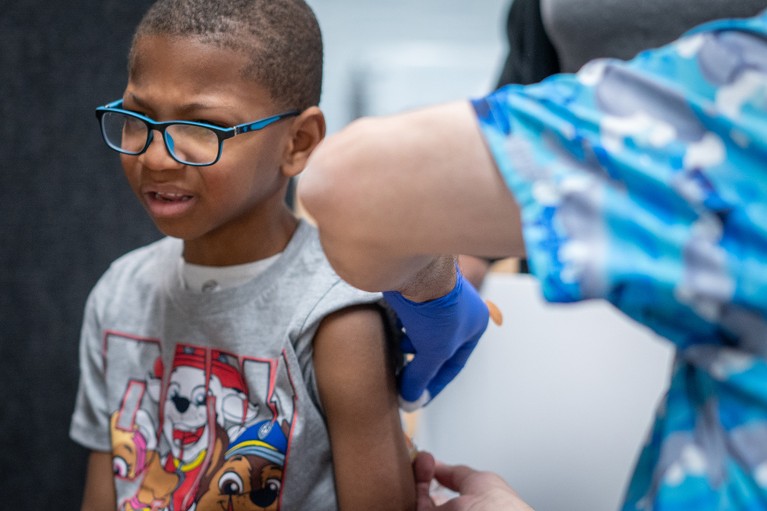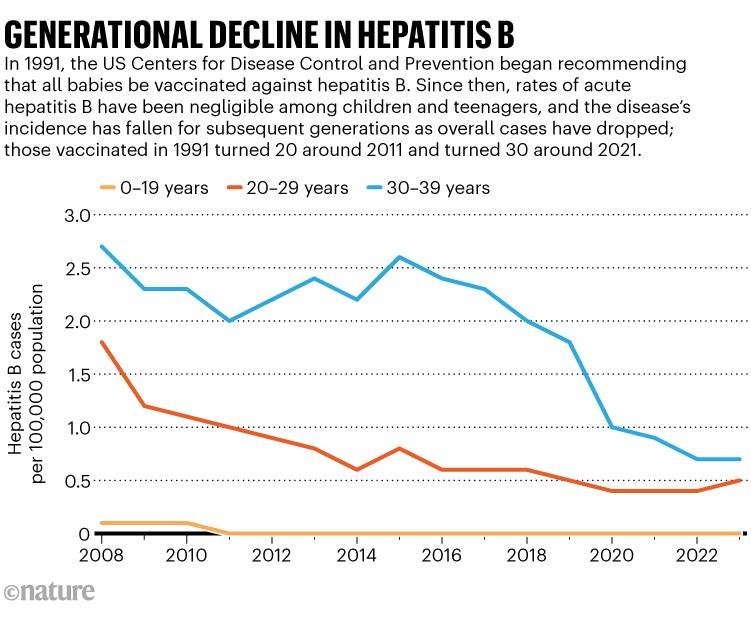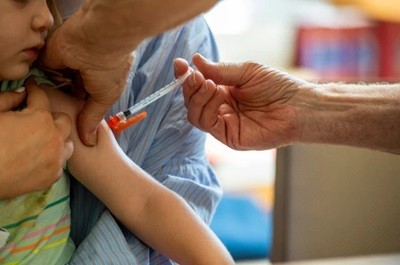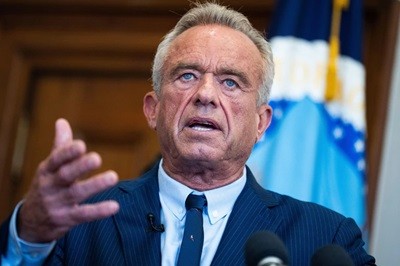
A child receives a measles, mumps and rubella vaccine earlier this year in Lubbock, Texas.Credit: Jan Sonnenmair/Getty
Next week, the panel of top advisers who recommend how vaccines are used in the United States will meet to review jabs that protect against COVID-19, hepatitis B and other diseases. The meeting — the committee’s second since US health secretary and anti-vaccine advocate Robert F. Kennedy Jr abruptly fired all of its previous 17 members and welcomed 7 new ones — has raised eyebrows among public-health specialists, given that the safety and efficacy of some of the vaccines on the agenda have been well established for years.
Who is on RFK Jr’s new vaccine panel — and what will they do?
“I’m very concerned, given the signalling from the members of this newly reconstituted, hand-picked [committee] that they are going to select targets for further restriction,” says Andrew Pavia, a physician with the Infectious Diseases Society of America, a medical association based in Arlington, Virginia. At their last meeting, the advisers — several of whom have publicly expressed anti-vaccine views — voted to end the use of the preservative thimerosal in influenza vaccines despite evidence that it is safe at the doses found in jabs.
It is unclear exactly what the Advisory Committee on Immunization Practices (ACIP) will vote on at next week’s meeting, to be held on 18 and 19 September, because the agenda lacks detail, increasing researchers’ concern. “It’s very unusual for ACIP to put things on the agenda with only a month’s notice and not discuss who’s going to be presenting data, what data is going to be looked at, and what, if any, questions might come up for a vote,” Pavia says.
The US Department of Health and Human Services, which is run by Kennedy and has authority over the ACIP, did not respond to Nature‘s request for comment.
Nature spoke to public-health specialists about the vaccines up for discussion, what the committee might vote on and the data they should be considering.
Scrutiny for COVID-19 jabs
Last month, the US Food and Drug Administration (FDA) approved updated COVID-19 vaccines, but it imposed limitations on who can get the shots. Whereas the vaccines were previously authorized for all people aged 6 months and older in the United States, now they are approved only for those older than 65 years, as well as people with health conditions that put them at high risk of severe disease.
RFK Jr demanded a vaccine study be retracted — the journal said no
The FDA is responsible for authorizing new vaccines, whereas the ACIP, overseen by the US Centers for Disease Control and Prevention (CDC), advises on who should receive them. These recommendations, which are typically adopted by the CDC as official policy, help to inform which vaccines are covered by health insurance
“I assume ACIP could end up mirroring what the FDA has recommended” for COVID-19 shots, says Adam Ratner, a paediatrician with the American Academy of Pediatrics (AAP), an organization based in Itasca, Illinois.
In a statement following the FDA’s decision on 27 August, the AAP’s president, Susan Kressly, called the move “deeply troubling”, especially for children, whose safety Kennedy has focused on when questioning vaccines. The previous week, the AAP issued its own recommendation that all children, 6 months and older should be vaccinated and, in particular, kids aged 6 to 23 months old, who are at high risk of severe COVID-19.
According to data from the 2022–23 cold and flu season, mRNA-based COVID-19 vaccines were between 46% and 70% effective at preventing COVID-19-related emergencies for children aged 6 months up to 5 years during a 2-month window after the second or third dose. (Flu vaccines, which are also updated seasonally, are typically 40–60% effective.) And such shots elicited no safety concerns in that same age group.
However, The Washington Post is reporting that Trump health officials might link COVID-19 vaccines with 25 paediatric deaths reported to a vaccine safety database at next week’s meeting. Anyone can submit reports to the database, but claims must be investigated to confirm a link..
Hepatitis B shots no longer for newborns?
Anti-vaccine advocates have been questioning whether a hepatitis B vaccine should be given to newborns — the current practice in the United States. Instead, they are suggesting that jabs be administered only to people with certain high-risk behaviours, including unprotected sex and drug use, Pavia says. That’s a problem, he adds, because “the majority of hepatitis B worldwide is transmitted from mother to infant”.
Hepatitis B is a liver disease caused by a virus that spreads through contact with infected blood and other body fluids. According to the AAP, babies infected with hepatitis B in their first year of life have a 90% chance of developing chronic disease, and one-quarter of those with chronic hepatitis B die from it.

Source: CDC/National Notifiable Diseases Surveillance System
Since the United States began recommending hepatitis B vaccines for infants in the 1990s, cases have dropped significantly (see ‘Generational decline in hepatitis B’). Administering “earlier is always better with an incurable virus”, says Peter Chin-Hong, an infectious-disease physician at the University of California, San Francisco.
Source link




